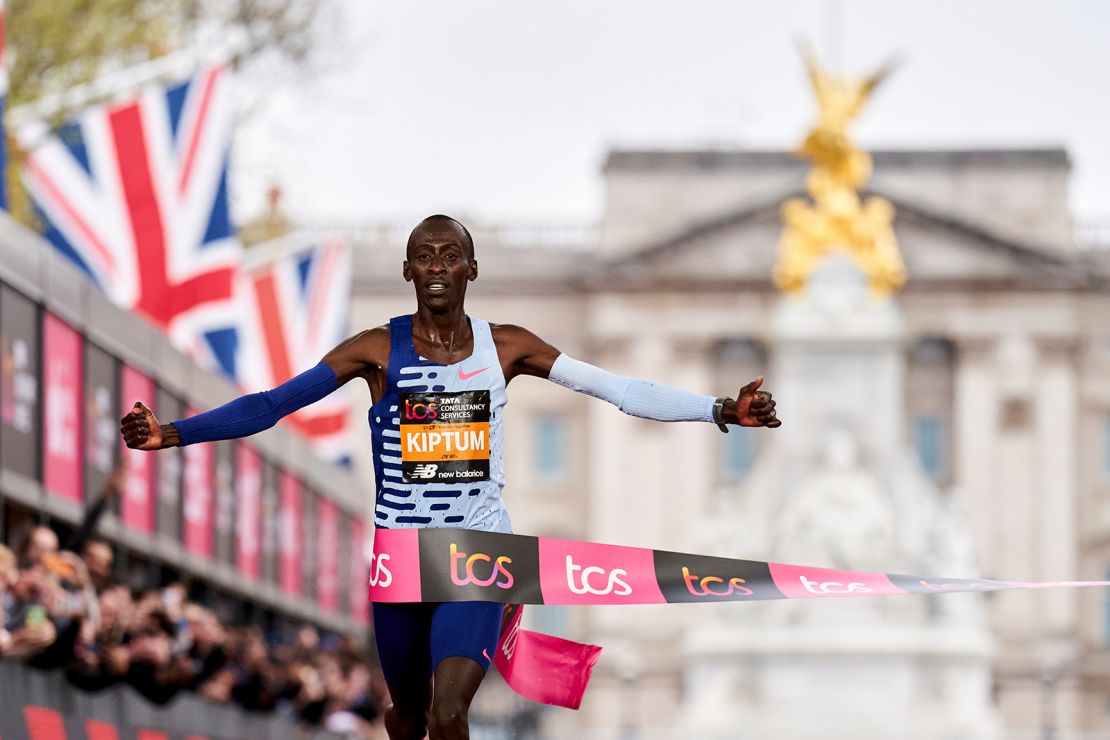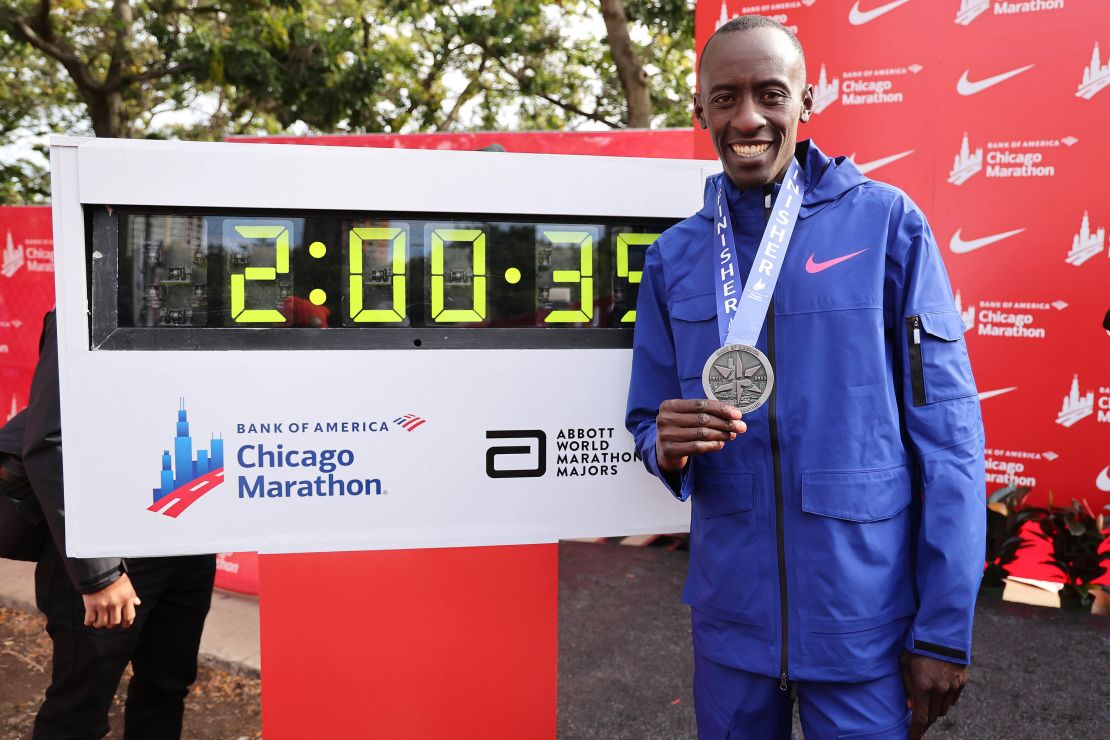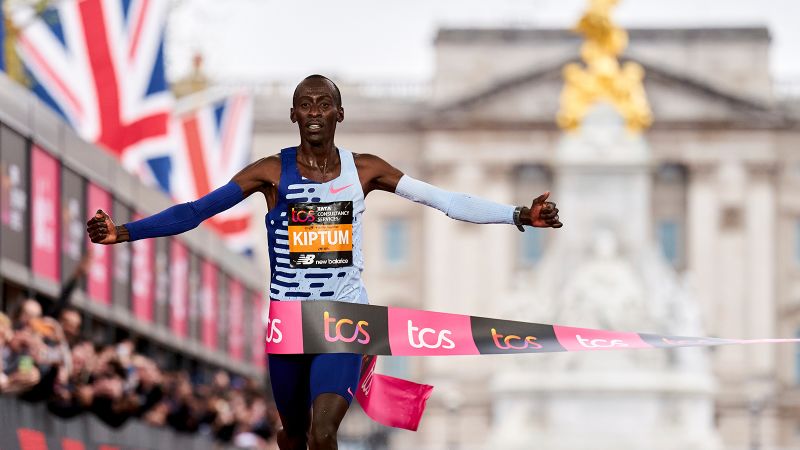CNN
—
Before his life was cut short at the age of 24 in a road accident, Kelvin Kiptum had been intent on achieving even more history in his brief but extraordinary marathon running career.
Already the world record holder over 26.2 miles, Kiptum’s next challenge was to become the first person ever to break the two-hour barrier in an official race at the Rotterdam Marathon in April. In pursuit of this goal, his life was simple and his training rigorous.
“Currently my days consist of eat, sleep, train and repeat,” Kiptum wrote on social media last month. “My preparation is my main focus at the moment.”
But the world will never know if he could break his own record, nor the hallowed two-hour barrier – one of the legendary frontiers in distance running. On Sunday, Kiptum’s career was tragically curtailed after he died alongside his coach, Gervais Hakizimana.
“An incredible athlete leaving an incredible legacy,” is how Sebastian Coe, the president of global governing body World Athletics, described the Kenyan’s footprint on the sport.

In a short space of time, Kiptum enjoyed unprecedented success in the marathon. He came within 44 seconds of compatriot Eliud Kipchoge’s then-world record during his debut in Valencia, broke the course record in London, and then set his world record of two hours and 35 seconds in Chicago.
Of the seven fastest marathon times in history, Kiptum owns three of them. For someone just at the start of his running career, it is only natural to wonder what he could have gone on to achieve.
At this year’s Paris Olympics, Kiptum was expected to represent Kenya alongside Kipchoge, who for a long time was considered untouchable over the marathon distance.
As well as holding the official world record for five years prior to Kiptum, the 39-year-old Kipchoge also became the first man to break the two-hour barrier unofficially.
That event, staged on a flat, straight course in the Austrian capital of Vienna, saw Kipchoge run in conditions engineered to produce a fast time, including assistance from a rotating group of pacesetters and unlimited access to hydration.
Kiptum and Kipchoge have never raced each other, but this year’s Olympics could have been an opportunity to watch the two-time gold medalist compete against the current world record holder – the old master against the rising star.
“An athlete who had a whole life ahead of him to achieve incredible greatness,” Kipchoge wrote on social media in response to Kiptum’s death. “I offer my deepest condolences to his young family.”

Born in Chepsamo village in Chepkorio, Kiptum was raised in the distance-running heartland of Kenya’s Rift Valley, not far from the town of Eldoret.
Sitting at around 2,100 meters above sea level, Eldoret’s altitude and temperate weather make it a breeding ground for the world’s top athletes, and Kiptum was one of the latest global stars to emerge from the region in the West of Kenya.
His beginnings, though, were humble, spending his childhood years herding cattle and goats on his family’s farm before taking up running as a teenager.
According to World Athletics, Kiptum’s first race was a half marathon in Eldoret in 2013. He would go on to win that event five years later, and from there started to compete internationally in Europe.
Most elite distance runners would start their careers on the track – racing shorter distances before graduating to half and full marathons on road – but Kiptum ignored that tradition.
He raced his first marathon in Valencia two days after his 23rd birthday and within the space of a year had become the world record holder.
His rise was meteoric, and so too were his times. In each of his three marathons, Kiptum produced a masterclass in how to pace negative splits, the term for running the second half of a race faster than the first.
Many argue that recent developments in shoe technology have enabled athletes to produce record-breaking times, but Kiptum – who wore Nike’s Alphafly 3 in Chicago, described by the company as “the fastest marathon shoe in the world” – regularly attributed his success to dedicated training and careful preparation.
In particular, he became known for his high-mileage training – sometimes running more than 180 miles a week in the lead-up to races – and was largely self-coached before working with Hakizimana on a more formal basis last year.
“There’s no weekly rest,” Hakizimana told AFP about Kiptum’s about training schedule ahead of the Chicago Marathon. “We rest when he gets tired. If he doesn’t show signs of fatigue or pain for a month, we continue. All he does is run, eat, sleep.”
Himself a former professional athlete who competed for Rwanda, the 36-year-old Hakizimana also died when the Toyota Premio that Kiptum was driving crashed outside Eldoret. According to Kenyan police, a third occupant survived with serious injuries.
Kiptum leaves behind his wife and two children, as well as a gaping hole in the world of distance running. His death will be felt keenly in Rotterdam and at the Olympics, which were his two target races for 2024.
“I will get close to the sub-two barrier, so why not aim to break it?” Kiptum had said in November. “That might look ambitious, but I’m not afraid of setting these kind of goals. There’s no limit to human energy.”






